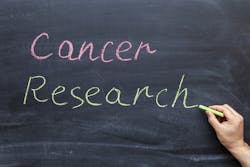CancerLinQ Partners on Patient Engagement
The American Society of Clinical Oncology’s CancerLinQ real-world oncology data platform is collaborating with nonprofit Count Me In to more actively engaging patients as part of clinical research.
ASCO’s CancerLinQ collects and aggregates electronic health record (EHR) data from oncology practices across the United States to advance cancer care through quality improvement and research. It includes de-identified data from more than 2 million patients with cancer from all 50 states. The network includes more than 100 cancer centers and community oncology practices.
Count Me In, a research initiative of the Broad Institute of MIT and Harvard, the Emerson Collective, and Dana-Farber Cancer Institute, provides patients with a mechanism to participate in cancer research by sharing their unique, de-identified medical information and history with cancer researchers and investigators. Since 2015, more than 10,000 patients with cancer have joined Count Me In and shared their unique medical information and history.
CancerLinQ will facilitate patient participation in clinical research by engaging its provider network to recruit and refer patients to the Count Me In program in the doctor’s office at the point of care. Patients who enroll in Count Me In consent to share information about their cancer experience, copies of their medical records, and samples.
“The reality is that less than 5 percent of patients with cancer participate in clinical research, and as cancer researchers we must do better and give more patients the opportunity to participate in research,” said CancerLinQ CEO Sean Khozin, M.D., M.P.H., in a statement. “With CancerLinQ’s new collaboration with Count Me In, we’re democratizing patient participation in cancer research by allowing more patients with cancer, including those from marginalized communities who have historically been excluded from research, to contribute to cancer discoveries and propel progress against cancer.”


